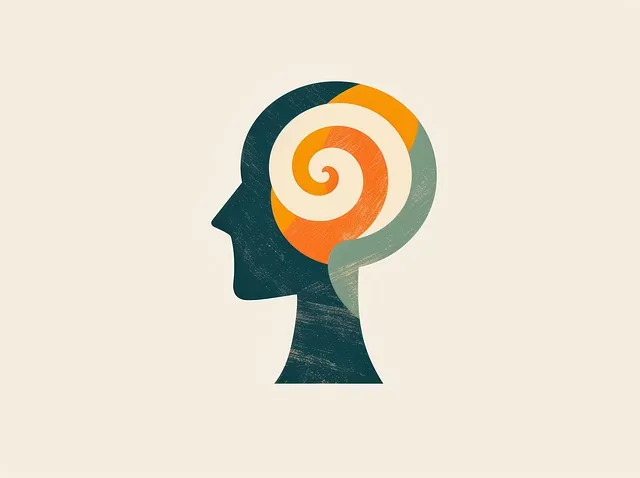Kaiser Permanente Mental Health Access Centers emphasize comprehensive social skills training as a vital component of holistic mental health recovery, addressing symptoms and building confidence in daily interactions. Through tailored programs like Mental Wellness Podcast Series Production and Inner Strength Development, they empower individuals with anxiety, depression, or PTSD to navigate social challenges, reduce isolation, and foster meaningful connections. By combining self-awareness exercises, role-playing, public awareness campaigns, and risk management training, these centers ensure clients develop robust social capabilities for improved well-being and community integration. This unique approach distinguishes Kaiser Permanente as a leader in superior mental health care.
Social skills training is a powerful tool for individuals navigating mental health conditions, offering a path to enhanced recovery. This comprehensive guide explores the significance of social interaction in mental wellness, with a focus on the role of Kaiser Permanente mental health access centers—true hubs of support. We’ll delve into the essential components of effective training programs and uncover the profound benefits that improved social abilities bring to real-life situations, ultimately empowering individuals for superior mental health management.
- Understanding the Importance of Social Skills for Mental Health Recovery
- The Role of Kaiser Permanente Mental Health Access Centers in Providing Social Skills Training
- Key Components of Effective Social Skills Training Programs
- Benefits and Real-World Applications of Enhanced Social Interaction Abilities
Understanding the Importance of Social Skills for Mental Health Recovery

Social skills training is a vital component of mental health recovery, often overlooked yet profoundly impactful. It plays a pivotal role in empowering individuals with conditions like anxiety, depression, or PTSD to navigate social interactions with confidence and ease. At Kaiser Permanente Mental Health Access Centers, we recognize that superior mental health care encompasses not just treating symptoms but also fostering social capabilities that contribute to overall wellness.
Incorporating coping skills development through programs like our Mental Wellness Podcast Series Production and engaging in public awareness campaigns can significantly enhance recovery outcomes. These initiatives aim to create supportive environments where individuals learn effective communication, assertiveness, and empathy—essential tools for building meaningful connections and fostering a sense of belonging. By prioritizing social skills training, we support the holistic healing process, enabling our clients to thrive not just in isolation but also within their communities.
The Role of Kaiser Permanente Mental Health Access Centers in Providing Social Skills Training

The Kaiser Permanente mental health access centers play a pivotal role in providing comprehensive care, including social skills training, for individuals dealing with various mental health conditions. These centers are designed to offer superior support, addressing not just the symptoms but also the underlying challenges that impact daily functioning. Through specialized programs, they facilitate the development of essential social skills, empowering patients to navigate social situations with increased confidence and ease.
With a focus on Mental Health Policy Analysis and Advocacy, these access centers strive to promote understanding and reduce stigma surrounding mental health issues. By offering Anxiety Relief strategies and fostering Inner Strength Development, they enable individuals to build resilience and improve overall well-being. The tailored training sessions cater to diverse needs, ensuring that each patient receives the support necessary to enhance their social interactions and lead more fulfilling lives.
Key Components of Effective Social Skills Training Programs

Social Skills Training Programs for mental health conditions should be structured around several key components to ensure effectiveness. At the Kaiser Permanente Mental Health Access Center, Superior programs prioritize Self-Awareness Exercises as a foundation. These exercises help individuals recognize their emotions, triggers, and behaviors, fostering introspection and personal growth. By enhancing self-awareness, trainees can better navigate social interactions and manage their mental health symptoms proactively.
Additionally, successful training incorporates role-playing scenarios to practice real-world social encounters. This hands-on approach, coupled with feedback from peers and mentors, empowers participants to develop effective communication strategies. Moreover, integrating Public Awareness Campaigns Development into the curriculum raises awareness about mental health issues in society, promoting understanding and reducing stigma. Equally important is incorporating Risk Management Planning for Mental Health Professionals, ensuring trainees are equipped to handle crisis situations safely and ethically.
Benefits and Real-World Applications of Enhanced Social Interaction Abilities

Enhanced social interaction abilities offer a multitude of benefits for individuals managing mental health conditions. Through programs like those provided by Kaiser Permanente’s Mental Health Access Centers, folks gain skills to navigate relationships more effectively. This can lead to improved mental well-being, reduced symptoms of depression and anxiety, and better coping mechanisms in day-to-day life. Real-world applications include increased confidence in social settings, fostered empathy within communities, and improved communication strategies that promote understanding and support networks.
By learning effective empathy building strategies, for instance, individuals can form deeper connections with others, leading to less isolation and increased feelings of belonging. These enhanced abilities translate into better mental health outcomes, as social interaction is a key component in preventing relapses and managing conditions such as depression and anxiety. Thus, investing in training that boosts these skills can have profound impacts on the quality of life for those navigating mental health challenges.
Social skills training, facilitated by organizations like Kaiser Permanente Mental Health Access Centers, plays a pivotal role in enhancing recovery for individuals with mental health conditions. By focusing on key components such as communication, empathy, and group interaction, these programs empower participants to navigate social situations with greater confidence. The benefits are profound, leading to improved relationships, increased community involvement, and overall better mental well-being. Kaiser Permanente’s superior approach to social skills training serves as a powerful tool in fostering meaningful connections and revolutionizing the lives of those seeking support for their mental health journeys.






